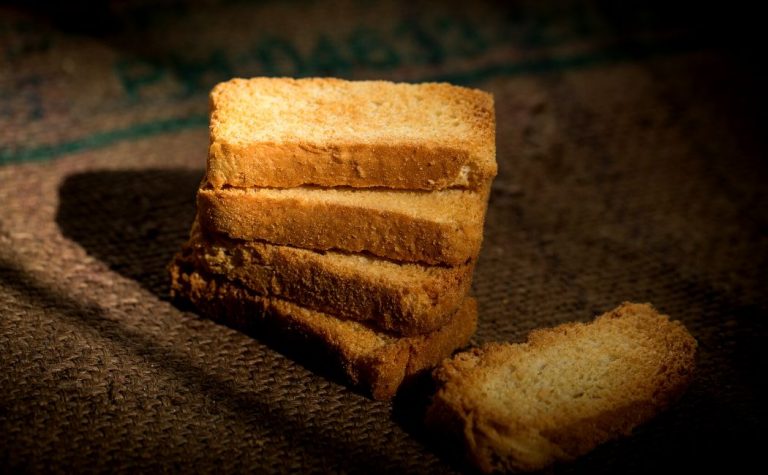Can You Take Protein Powder on Keto? Unlock the Benefits
If you’re following a ketogenic diet, you may be wondering if protein powder is off-limits or if can you take protein powder on keto. After all, many protein powders are made with milk or whey, which are high in carbs.
Fortunately, there are plenty of low-carb protein powders on the market that can fit into a keto diet. In fact, protein powder can be a great way to help meet your daily protein needs while on this diet.
When choosing a protein powder for a keto diet, look for one that is low in carbs and sugar. Ideally, it should also be rich in healthy fats and fiber. A good quality grass-fed whey protein powder is a great option. Another possibility is pea protein powder.
As with all supplements, be sure to talk to your doctor before adding protein powder to your diet, especially if you have any health conditions.
Protein powder can be a great way to help meet your daily protein needs on a keto diet. Just be sure to choose a low-carb option and consult with the best nutrition doctor before starting.
What is the ketogenic diet?
The ketogenic diet is a high-fat, low-carbohydrate diet that has been shown to offer several health benefits. People often ask us this question, can you take protein powder on keto? We’ve got your back and we just don’t have the answer but all the facts that you need to know about it.
When following a ketogenic diet, your body enters a state of ketosis, which means that it burns fat for fuel instead of carbohydrates.
This can lead to weight loss and improved blood sugar control. Additionally, the ketogenic diet has been shown to improve heart health, reduce inflammation, and boost brain health.
Is Protein Powder Keto Friendly?

Can you take protein powder on keto? Yes, protein powder is keto-friendly! It can be a great way to help you meet your daily protein needs while following a ketogenic diet. There are many different types of protein powder available on the market, so be sure to choose one that fits your specific dietary needs and preferences.
If you’re looking for a high-quality protein powder that’s also keto-friendly, I recommend checking out KetoSports’ line of products. They offer a variety of protein powders, all of which are perfect for those following a ketogenic diet.
So, there you have it! Protein powder is keto-friendly and can be a great addition to your diet if you’re looking to up your protein intake. Be sure to choose a powder that fits your specific dietary needs, and you’ll be well on your way to meeting your daily protein goals.
Below is a table that contains information regarding different protein powder types and their suitability for keto. Let’s take a quick look
| Protein Powder Type | Carb Content (per serving) | Keto-Friendly? | Source | Best For |
|---|---|---|---|---|
| Whey Protein | 1-2 grams | Yes | Dairy | Muscle recovery, high bioavailability |
| Casein Protein | 3-4 grams | No | Dairy | Slow-digesting, ideal for nighttime use |
| Pea Protein | 2-4 grams | Yes | Plant-based | Vegan, allergen-friendly |
| Collagen Protein | 0 grams | Yes | Animal | Joint health, skin elasticity |
| Egg White Protein | 0-1 grams | Yes | Animal | Lean, easily digestible |
| Hemp Protein | 3-4 grams | Yes | Plant-based | High in fiber, vegan |
Protein powder and a keto diet?
If you’re following a keto diet, you may be thinking this, can you take protein powder on keto? After all, protein powder is often marketed as a bodybuilding supplement and many people believe that it’s not possible to build muscle on a keto diet.
However, protein powder can actually be a helpful tool for people following a keto diet, especially if you’re struggling to get enough protein from whole food sources. Here’s what you need to know about using protein powder on a keto diet.
First of all, it’s important to choose a protein powder that is low in carbs. There are many different types of protein powders available on the market, so make sure to read the labels carefully to find one that fits into your keto diet.
Secondly, you’ll need to be careful about how much protein powder you consume. Although protein powder can help you reach your daily protein needs, it’s easy to overdo it and end up consuming too many calories.
For this reason, it’s a good idea to measure out your servings of protein powder and make sure you’re not going over your daily calorie limit.
Finally, remember that protein powder is just one tool in your keto diet arsenal. Don’t forget to focus on getting most of your calories from healthy fats and moderate amounts of high-quality protein from whole food sources. By following these guidelines, you can ensure that protein powder will help, not hinder, your success on a keto diet.
Can you take protein powder on keto? when following a keto diet, protein powder can be a helpful tool to reach your daily protein needs. Just make sure to choose a low-carb variety and be careful not to overdo it on calories. By following these tips, you can ensure that protein powder will help, not hinder, your success on a keto diet.
Nutritional value of protein powder
Protein powder is a popular dietary supplement that is often used to increase muscle mass and improve athletic performance. Although protein powder can be a valuable addition to your diet, it is important to be aware of the nutritional value of this product before you consume it.
Protein powder is typically made from one or more sources of protein, such as whey, casein, soy, or egg. This protein is then concentrated and dried into a powder form. Protein powders vary in their protein content, but most contain between 20 and 30 grams of protein per scoop.
While protein powder can be a good source of protein but can you take protein powder on keto? It’s important to remember that it is not a complete source of nutrition. Protein powder does not provide all of the essential nutrients your body needs, so it should not be used as a replacement for whole foods. Instead, protein powder can be used as a supplement to help you meet your daily protein needs.
When choosing a protein powder, it is important to read the nutrition label to determine the amount of protein per serving. You should also look for a protein powder that contains other nutrients such as vitamins and minerals. In addition, it is important to choose a protein powder that is low in fat and sugar.
If you’ve got answer to this question, can you take protein powder on keto? then talk to your doctor or registered dietitian first. They can help you determine if this product is right for you and how to best incorporate it into your overall nutritional plan.






